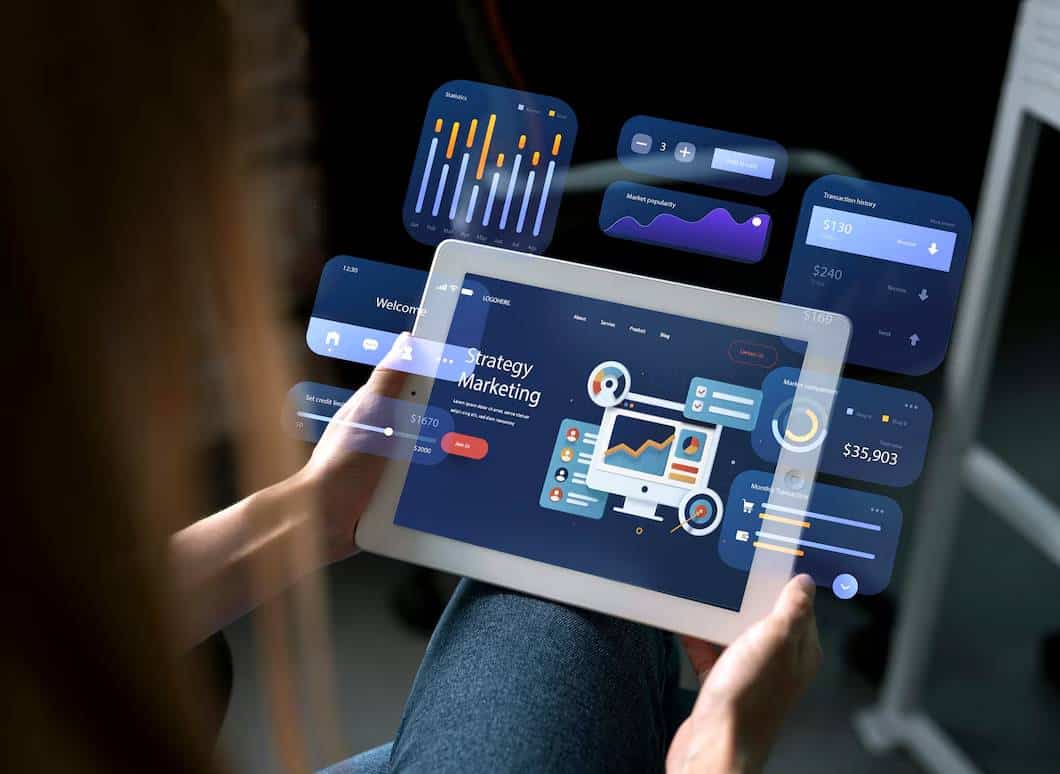
AI-Powered Tools for Market Research: Revolutionising the Future of Competitor Analysis and Marketing Insights
Smart market research is key to staying competitive in today’s fast digital world. Traditional methods are helpful, but AI tools are changing market research. They promise to transform how businesses operate. This blog explores how artificial intelligence is changing market research. It highlights competitor analysis and marketing insights. By the end of this article, you will see how AI changes this field. You’ll also understand why businesses must adopt these technologies to stay competitive.
AI tools change the game for businesses. They aren’t just upgrades. They change how companies collect, analyse, and use market insights. Their scalability, accuracy, and real-time features offer benefits that manual analysis can’t match. AI technology is growing. Its use in market research is now essential and beneficial.
Key Benefits of AI in Market Research
Enhanced Data Processing Capabilities
AI tools for the market research process can handle extensive data sets much faster than human analysts. These tools can search unstructured data from different sources. This includes social media, forums, and online reviews. They help extract valuable insights. This feature saves time and gives businesses the latest, most relevant data.
Tools like NetBase and Brandwatch use NLP. They monitor online sentiment and find trends. These platforms help companies see how customers feel and react to the market, giving a better view of brand perception and product performance.
AI tools work fast and can handle large amounts of data. This helps researchers spot changes in customer opinions quickly, allowing brands to respond better to public feelings or crises.
Improved Accuracy and Precision
One big advantage of using AI for market research is its high accuracy in data analysis. Machine learning algorithms spot patterns and trends that traditional methods might miss. This helps with competitor analysis and marketing insights, allowing businesses to make better decisions.
AI tools like Crayon and Similarweb can provide detailed insights. They remove human bias and error, helping analyze competitor web traffic, ad tactics, and keyword strategies. These platforms help companies target better and change direction quickly using reliable data.
Real-Time Insights and Predictive Analytics

AI tools offer real-time insights, which are invaluable in today’s fast-moving markets. Using predictive analytics, businesses can spot market trends and understand consumer behaviour. This helps them change their strategies ahead of time. This forward-thinking approach can significantly enhance a company’s competitive position.
Tools like Tableau with Einstein Discovery and IBM Watson can predict market changes. They also identify at-risk customer segments. This helps businesses act quickly before trends become popular.
Cost Efficiency
Implementing AI tools in market research can lead to substantial cost savings. These tools cut down on the need for manual data collection and analysis, helping businesses use their resources more effectively. Investing in AI technology often leads to quick returns, as you gain better efficiency and insights.
Thanks to automation, smaller teams can now perform enterprise-level market analysis. Subscription-based models for AI tools offer scalability, which helps startups and SMEs do advanced research more easily. They used to struggle with budget limits.
Reducing reliance on third-party research agencies can save money. In-house teams can create and act on insights quickly.
Why AI-Powered Market Research Tools Matter
Competitor Analysis: Gaining the Upper Hand
Competitor analysis is key to market research, and AI tools have changed how we do it. AI helps businesses understand their competitors better. They can see their strategies, strengths, and weaknesses more clearly. AI can analyze competitors’ online content, social media, and customer feedback, giving a clear picture of their market position.
SEMrush and Ahrefs use AI. They track keyword rankings, backlink growth, and competitors’ content strategies. This helps marketers track how they perform. They can find ways to outshine competitors in both organic and paid search.
Some AI platforms provide sentiment and engagement analysis of competitor content. This helps businesses see what connects with audiences. They can use this insight to improve their products and gain market share.
Marketing Insights: Understanding Your Audience

AI tools provide unparalleled insights into consumer behaviour and preferences. AI can analyze data from different sources, like social media and purchase history, to create detailed customer profiles. This lets businesses focus their marketing on specific audiences, boosting the chances of successful campaigns.
Also, platforms like HubSpot and Salesforce’s Marketing Cloud use AI. They provide dynamic segmentation and behaviour-based recommendations. These insights lead to hyper-personalised campaigns, better engagement rates, and higher conversion metrics.
AI helps marketers perform psychographic analysis. This shows motivations, values, and pain points, enabling businesses to connect with audiences more deeply and emotionally.
Real-World Applications and Data-Backed Insights
Many businesses have already reaped the benefits of AI-powered market research tools. A top retail chain used AI to check customer feedback and social media. They found a strong demand for eco-friendly products. The company acted on this insight. As a result, it launched a successful line of sustainable products. This boosted its market share and improved its brand reputation.
A global beverage brand used AI tools to track reactions to a controversial ad campaign. This let them release a revised version within hours. As a result, they avoided a potential PR crisis.
Additional Expert Tips & Common Mistakes to Avoid
Best Practices for Implementing AI in Market Research
- Set Clear Goals: First, businesses need to define their research objectives. This helps guide the AI tool implementation. This ensures that the insights gained align with the company’s strategic goals.
- Pick the Right Tools: Many AI tools exist, each with pros and cons. Businesses should examine their options carefully and choose tools that best suit their needs.
- Ensure Data Quality: AI insights are only as good as the data behind them. Businesses should prioritise data cleaning and validation to ensure reliable results.
- Train Teams Well: Give staff the skills to understand AI results. Help them use these insights in real business plans.
Common Mistakes and Misconceptions
- Don’t depend too much on AI: These tools are strong, but can’t replace human intuition and know-how. Businesses should use AI as a complement to, rather than a substitute for, human analysis.
- Ignoring Ethics: Using AI in market research concerns data privacy. Businesses must ensure compliance with data protection regulations and ethical standards.
- Neglecting Continuous Learning: AI technology is constantly evolving. Businesses should keep up with the latest news. They need to update their tools and strategies often.
- Assuming One-Size-Fits-All: Each market and business is unique. AI solutions must fit specific use cases and industry contexts to maximise value.
Advanced Insights and Expert Recommendations
Leveraging AI for Competitive Advantage
Businesses should include these tools in their strategy to make the most of AI in market research. This involves fostering a culture of innovation and data-driven decision-making, which helps companies boost their market research and grow their business.
Companies using AI insights in areas like marketing and product development innovate faster and better align with customer needs.
Leaders should promote AI adoption and create a learning environment. This space should encourage trying new tools and acting quickly on insights.
Unique Industry Perspectives
Different industries can benefit from AI-powered market research in unique ways. For instance, the healthcare sector can use AI to analyse patient feedback. This helps improve service delivery. Meanwhile, the financial industry can leverage AI to predict market changes. It also optimises investment strategies. Businesses can get the most from AI tools by knowing how they work in their industry.
In retail, AI can forecast inventory needs based on demand trends. In the travel industry, sentiment analysis tools can predict seasonal booking patterns. The key lies in tailoring AI applications to the nuances of each sector.
In manufacturing, AI helps check supplier reliability and market risks by analysing geopolitical and economic data. Entertainment companies use AI to learn what viewers like and optimise when to release new content.
Conclusion: Embracing the Future of Market Research
In conclusion, AI tools are changing market research. They provide businesses with new insights into competitor analysis and marketing strategies. Using these technologies, companies can boost their competitiveness, increase efficiency, and promote growth. AI is evolving, creating countless opportunities for new ideas in market research.
Businesses that use AI effectively will thrive in the fast-changing digital world. AI makes market research faster, more accurate, and cheaper. It helps with smarter segmentation and quick competitor analysis.
Given these insights, I urge businesses to investigate AI for market research and actively integrate these tools into their work. This will help them find new opportunities and achieve lasting success in a tough market.
What are your thoughts on the role of AI in market research? How do you see it shaping the future of your industry?